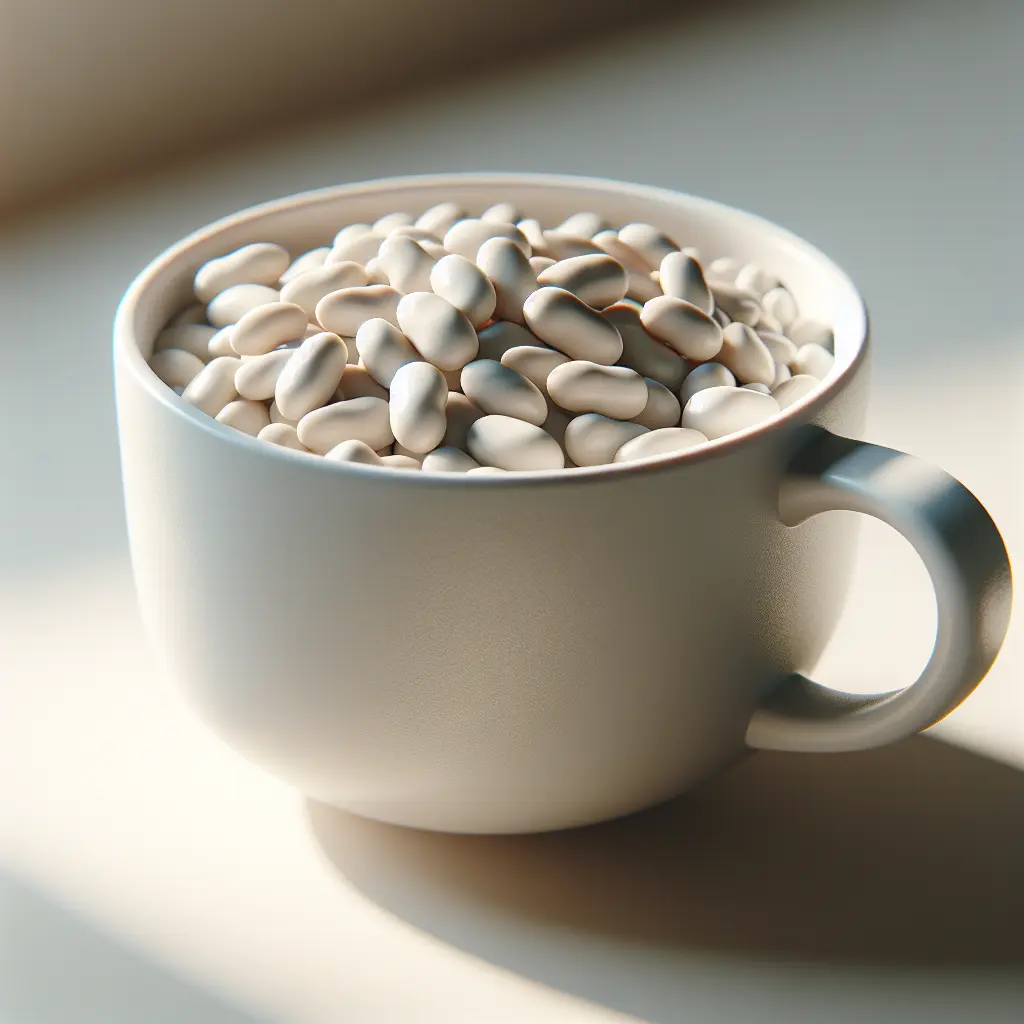White Beans: A Nutritional Powerhouse
White beans, also known as navy beans, are an unassuming yet nutritionally dense legume packed with an array of essential nutrients. They boast an impressive protein content, providing 17 grams per cup, making them a valuable plant-based protein source. Additionally, white beans are an excellent source of fiber, offering 11 grams per cup, which aids in maintaining a healthy digestive system and promoting satiety.
Beyond protein and fiber, white beans are rich in vitamins and minerals. They are a good source of iron, providing approximately 6 milligrams per cup, which is essential for red blood cell production and oxygen transport. White beans also contain significant amounts of folate, magnesium, and potassium. Folate is crucial for cell growth and DNA synthesis, while magnesium supports nerve and muscle function. Potassium plays a vital role in regulating blood pressure and maintaining fluid balance.
Culinary Versatility: Exploring White Beans in the Kitchen
White beans' culinary versatility shines through their ability to complement various cuisines and dishes. Their mild flavor and creamy texture make them an ideal ingredient for soups, stews, and salads. They are often used in Mediterranean料理, such as Greek fasolada (bean soup) and Italian pasta e fagioli (pasta and beans). In Latin American cuisine, white beans are a staple ingredient in dishes like Mexican frijoles charros (cowboy beans) and Brazilian feijoada (bean stew).
White beans can also be enjoyed as a standalone dish. They can be simply boiled and seasoned with herbs and spices, creating a nutritious and flavorful side dish. Mashed white beans, known as white bean dip or hummus, offer a creamy and protein-packed spread that pairs well with pita bread, vegetables, or crackers. Additionally, white beans can be incorporated into burgers, tacos, and burritos, adding a boost of protein and fiber to these popular dishes.
Incorporating White Beans into Your Diet
Incorporating white beans into your diet is a simple and effective way to enhance your nutritional intake. They are a budget-friendly and widely accessible legume, often available in dried or canned form. Dried beans require soaking and cooking, while canned beans are ready to use, making them a convenient option for busy individuals.
When cooking white beans from scratch, it is important to sort and rinse the beans to remove any debris or damaged beans. They should be soaked in water for several hours or overnight to soften them and reduce cooking time. After soaking, the beans can be cooked in a pot with fresh water, seasoned with herbs and spices as desired. The cooking time can vary depending on the type of bean and the soaking method used.
Whether you choose to enjoy them in soups, stews, salads, or as a standalone dish, white beans offer a versatile and nutritious addition to your culinary repertoire. Their protein, fiber, and vitamin content make them a valuable plant-based food that can support a healthy lifestyle.
How many calories are in White Beans?
Each 1 cup of White Beans contains 249 calories.
White Beans Nutritional Information
| Nutrient | Amount per 1 cup (179g) |
|---|---|
| Calories | 249 Calories |
| Protein | 17g |
| Fat | 0.6g |
| Saturated Fat | 0.2g |
| Cholesterol | 0mg |
| Carbohydrates | 45g |
| Dietary Fiber | 11g |
| Sugar | 0.6g |
| Sodium | 0.011mg |
| Potassium | 1.0042mg |
| Calcium | 0.161mg |
| Iron | 0.0066mg |
